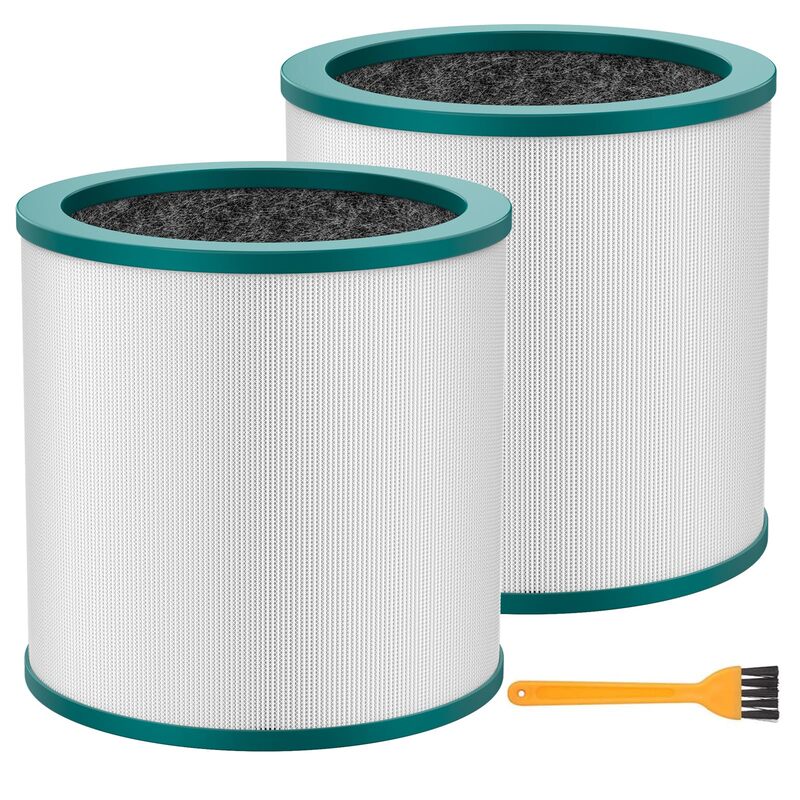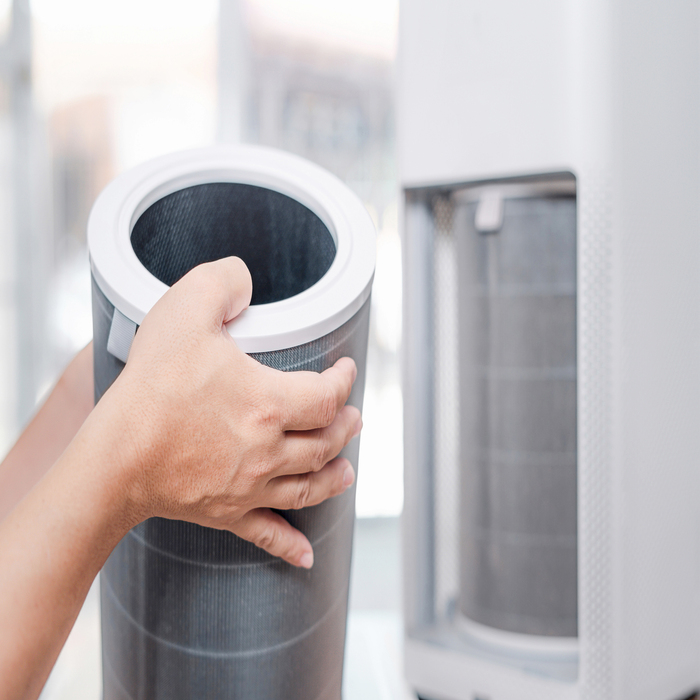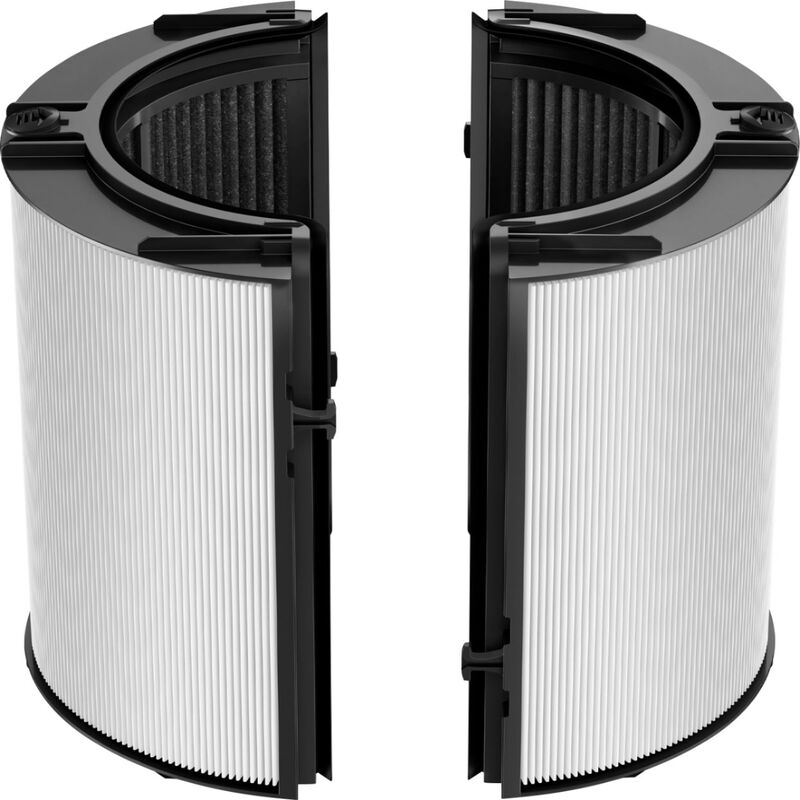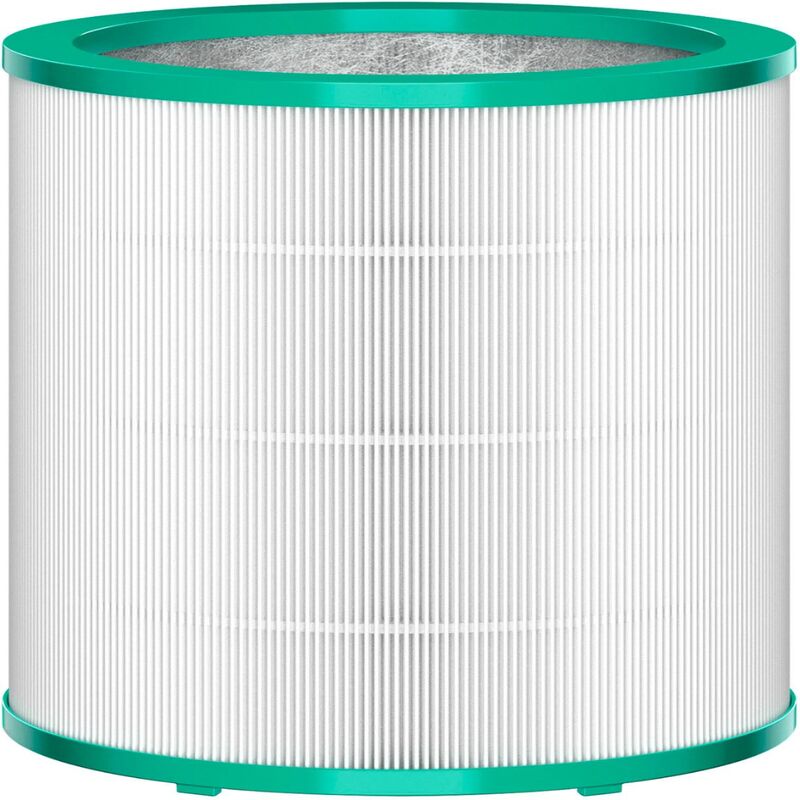In today’s world, maintaining clean air has become crucial for overall health and well-being. Air filters and air purifiers play essential roles in improving indoor air quality. However, many people confuse these two devices, often using their names interchangeably. Understanding their differences is key to making an informed decision. This article will examine both air filter vs air purifier, how they work, and when to use each.
What is an Air Filter?
Air filters are components often found in HVAC systems, air conditioning units, and furnaces. Their primary function is to trap dust, pollen, and other airborne particles. Consequently, they prevent these contaminants from circulating throughout your home. They come in various types, including HEPA filters, which are designed to capture small particles effectively. As air passes through the filter, particles get caught in the fibers, resulting in cleaner air being sent out.
The Role of an Air Filter
The primary role of an air filter is to improve the efficiency of your HVAC system. By keeping dust and debris out of the system, it allows for better airflow. This, in turn, can lead to lower energy consumption and costs. A clean filter also prolongs the life of your HVAC system, reducing the need for costly repairs. So, regular maintenance and timely replacements are essential for optimal performance.
Air Filter Maintenance
Air filters require routine maintenance for effective operation. Most homeowners should check their filters at least once a month. If the filter looks dirty or clogged, it’s time to replace it. The frequency of replacement may depend on various factors, including pollution levels and the presence of pets. Therefore, keeping a maintenance schedule is necessary for both air quality and energy efficiency.

What is an Air Purifier?
On the other hand, air purifiers are standalone devices designed specifically for cleaning indoor air. Unlike air filters, which only remove particles, air purifiers tackle various air contaminants, including mold spores, bacteria, and volatile organic compounds. They employ different technologies, such as ionization, UV light, and activated carbon, to achieve this goal.
How Air Purifiers Work
Air purifiers work by drawing in air from the room, filtering it, and sending out purified air. While some models use HEPA filters similar to air filters, others incorporate additional technologies for further purification. For instance, UV light can kill bacteria, while activated carbon removes odors and chemical vapors. Because of these capabilities, air purifiers are often more comprehensive in their cleaning processes than standard air filters.
Benefits of Using Air Purifiers
Air purifiers are highly beneficial for individuals with allergies or asthma. They provide immediate relief by significantly reducing airborne allergens. Moreover, they can neutralize odors, making your living space more pleasant. It’s especially useful in urban environments, where outdoor pollution may infiltrate indoor areas. Overall, air purifiers offer a broader range of benefits, making them a valuable investment for better air quality.
Key Differences Between Air Filters and Air Purifiers
The primary difference between air filters and air purifiers lies in their functionality. Air filters focus on particle removal within HVAC systems, while air purifiers target a wider range of contaminants. Understanding these distinctions helps consumers choose the right device for their specific needs. Knowing when to replace an air filter versus acquiring an air purifier is essential for maintaining a healthy indoor environment.
Applications of Air Filters
Air filters are typically found in heating and cooling systems. They operate continuously to trap allergens and debris, ensuring that your HVAC system functions efficiently. However, they have limitations. For instance, they may not capture odors or chemical vapors effectively. Therefore, even with good air filters, you might still want supplemental air purifiers in certain scenarios to achieve better air quality.
Applications of Air Purifiers
Air purifiers are versatile and portable, making them suitable for various indoor spaces. You can place them in bedrooms, living rooms, or even offices. Unlike air filters, they can target specific pollutants that HVAC systems might miss. For people living in urban environments, the combination of outdoor and indoor pollutants makes air purifiers especially useful. Hence, an air purifier can provide a cleaner, healthier living space.

Considerations for Choosing the Right Device
When selecting between air filters and air purifiers, consider your specific needs. If you’re primarily concerned about reducing dust and allergens, a good air filter may suffice. In contrast, if your home has persistent odors or you live in a polluted area, an air purifier could be more beneficial. Evaluating your environment and health concerns can guide your decision.
Health Considerations
If you or someone in your household suffers from allergies or asthma, air purifiers may be necessary. They can significantly reduce allergens like pet dander, mold, and pollen. On the other hand, if general dust and debris are your main concerns, an effective air filter could be adequate. Either way, prioritizing health is crucial for making your choice.
Environmental Factors
The environment in which you live greatly influences your air quality needs. For instance, urban areas often have higher levels of pollution. In such cases, an air purifier may be more effective in managing indoor air quality. Conversely, rural settings might require robust air filters for pollen and dust management. Evaluating your local air quality can help pinpoint the right solution.
Cost Considerations: Air Filters vs. Air Purifiers
Another essential aspect to consider is cost. Both air filters and air purifiers come with initial purchase prices and ongoing maintenance costs. Air filters are generally less expensive but might require frequent replacement. In contrast, air purifiers may have higher upfront costs but can lead to long-term savings on energy bills and health expenditures.
Upfront Costs
Air filters are typically affordable, with many options available at various price points. Depending on the type and quality, prices can range from a few dollars to over a hundred. Conversely, air purifiers tend to be more expensive, often costing hundreds of dollars or more. Therefore, you’ll also need to factor in the type of technology used in each purifier, as more advanced technologies usually come at a higher cost.
Ongoing Maintenance Costs
Ongoing maintenance is an essential consideration for both devices. Air filters need to be replaced every few months, adding to their overall cost. On the other hand, air purifiers often require filter replacements and may also need light bulb maintenance for UV models. Over time, these costs can add up, making it crucial to factor in lifetime expenses when deciding.

Environmental Impact: Choosing Wisely
Both air filters and air purifiers can have environmental effects. While their primary goal is to improve air quality, it’s essential to consider how they achieve that. The materials used in manufacturing and the energy consumption of the devices play a role in their overall environmental footprint.
Eco-Friendly Options
Many brands now offer eco-friendly air purifiers and filters. These products use sustainable materials and focus on minimizing environmental impact. When shopping, look for certifications like Energy Star. This ensures that you invest in energy-efficient models that don’t excessively consume power. Choosing eco-friendly options can align your air quality goals with your environmental priorities.
End-of-Life Considerations
Both air filters and air purifiers will eventually reach the end of their life cycles. Air filters, often made of synthetic materials, may not be recyclable. However, some manufacturers are developing recyclable or biodegradable options. Likewise, when an air purifier reaches the end of its life, consider how it can be disposed of responsibly. Always check local guidelines for recycling electronic appliances. Doing so contributes to a more sustainable environment.
Recommendations for Different Needs
The best choice depends on your specific air quality needs. In many cases, a combination of both devices may be the best solution. For instance, using an air filter within your HVAC system along with a portable air purifier can optimize air quality throughout your home. Understanding your unique situation will help in making the best choice.
Best Situations for Air Filters
Air filters are highly effective in homes with central heating and air conditioning systems. They work silently in the background, keeping airborne particles at bay. Furthermore, if pets are present, a good-quality filter can significantly reduce hair and dander. Consequently, air filters are ideal for families looking to maintain general cleanliness over time.
Best Situations for Air Purifiers
Air purifiers are better suited for specific needs, especially related to health concerns. If someone in your household suffers from asthma or allergies, investing in a high-quality air purifier is essential. They effectively remove airborne allergens, providing immediate relief. Additionally, if you live in a highly polluted area, having air purifiers in key rooms can offer an essential layer of protection.
Conclusion: Making the Right Choice for Your Home
In conclusion, both air filters and air purifiers serve crucial roles in maintaining clean indoor air. By understanding their distinct functions, you can make an informed decision. Always consider your health needs, environmental factors, and lift-cycle costs when choosing between the two. Additionally, combining both may provide the best overall air quality in your home. Ultimately, your choice will depend on your specific situation, ensuring you achieve optimal health and comfort. Cleaning the air you breathe is an investment worth making.

